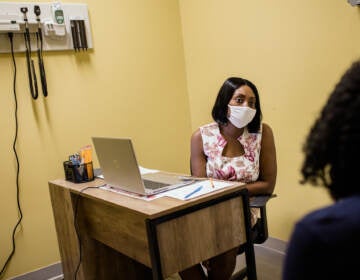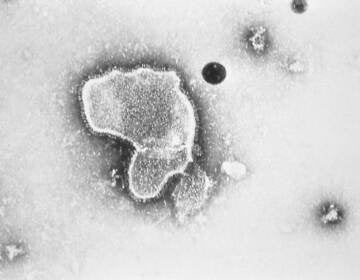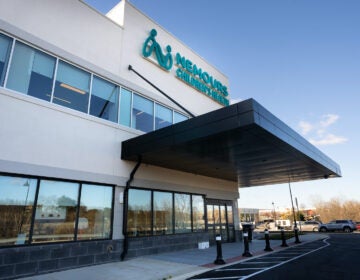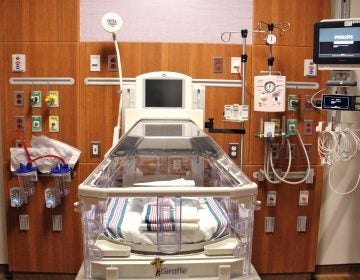Nemours to study, attack, reduce children’s health disparities using $25 million gift
The new Ginsburg Institute will focus on the root causes of asthma, obesity, diabetes, and behavioral disorders that disproportionately affect Black and Latino kids.
Listen 2:20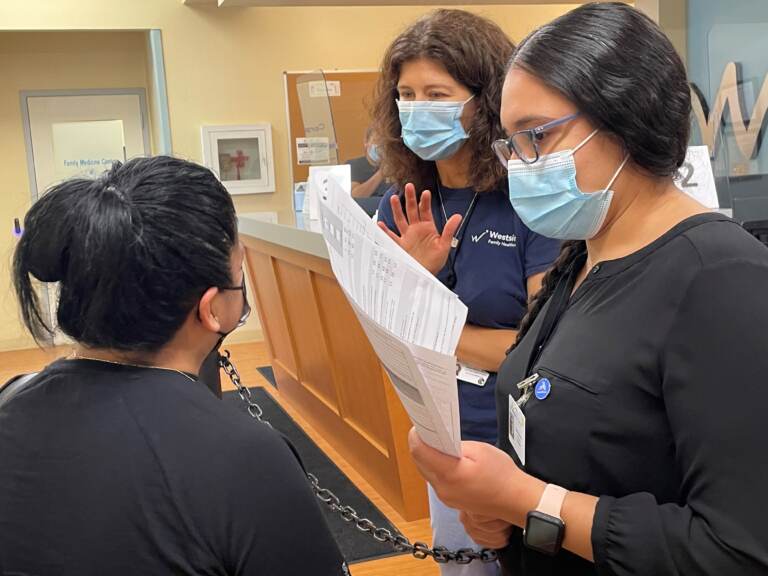
Dr. Megan Werner (center) of Westside Family Healthcare in Wilmington says the root causes of health disparities need to be addressed. (Cris Barrish/WHYY)
Reducing racial and other disparities in asthma, diabetes and other illnesses among kids is a new focus of an innovative $25 million project by the health system that runs Nemours Children’s Hospital near Wilmington.
The Ginsburg Institute for Health Equity at Nemours Children’s Health is being funded by the Orlando, Florida-based Ginsburg Family Foundation. Nemours also runs a children’s hospital in Orlando and outpatient facilities in Delaware, Florida, Pennsylvania, and New Jersey.
The institute will operate virtually with a singular goal: advancing health equity for children in medically underserved communities. The methods will include national policy discussions, clinical care, research, education, and quality improvement initiatives.
Nemours officials said the work will piggyback on its philosophy of a “pay-for-health’’ health care model rather than the one they say is most prevalent in the United States: a “sickness-and-disease-based mode” that fights symptoms with medicine and procedures.
Dr. Kara Odom Walker, former Delaware health and social services secretary, will play a key role as Nemours’ executive vice president and chief population health officer. She said “initiatives will be taking place” at the hospital in Delaware, but said it’s too early in the process to know which ones.
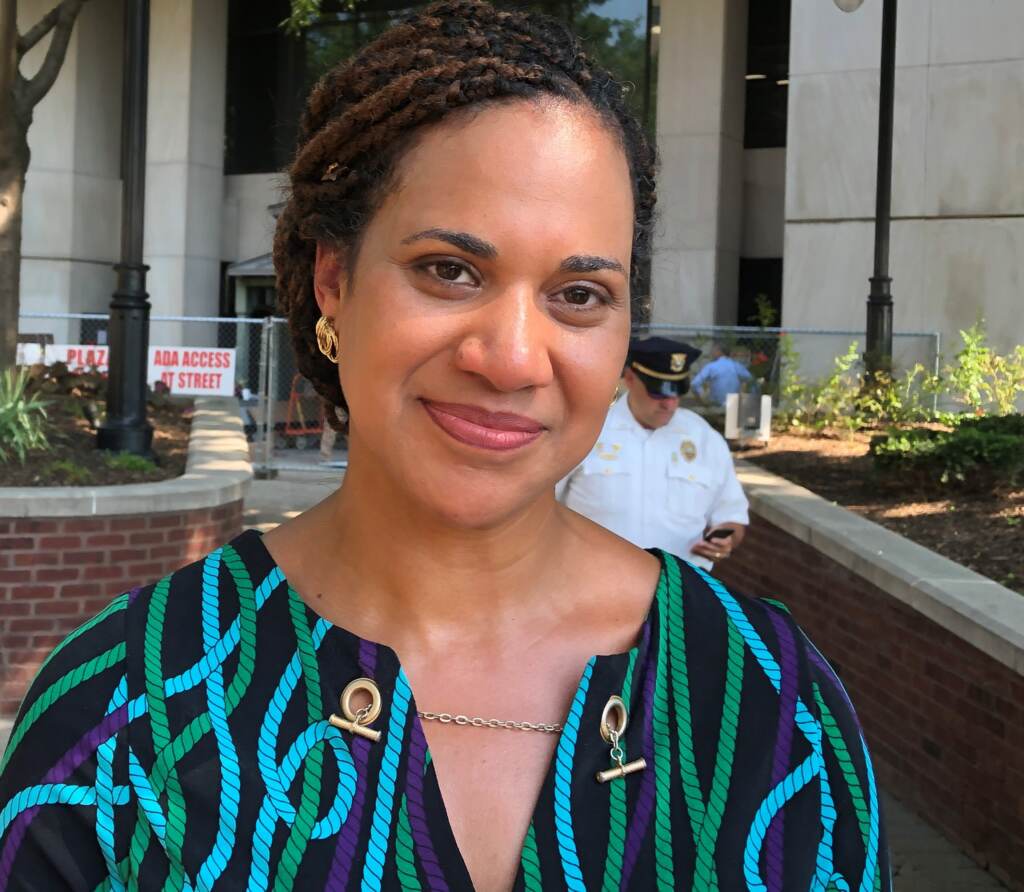
Odom Walker said disparities have “widened during COVID” over the last two years and “we’ve seen mental health outcomes be really unaddressed during COVID.” The $25 million gift is “going to let us think in new ways, create new ideas, new research, new evidence, and try to elevate the national policy conversation around health inequities,” she said.
Disparities are greatest in America for Black and Latino children, who are more likely than white children to live in poverty and be exposed to environmental factors such as air and water pollution.
For example, Black children get asthma at twice the rate as white children. Latino children have a higher rate of obesity and are more likely than white children to get Type 2 diabetes. Black and Latino children have also contracted the coronavirus at higher rates than white kids. Treating those maladies as well as behavior disorders is an increasingly costly endeavor, Nemours officials said.
Conducting the research will be pediatric specialists, behavioral economists, health services researchers, environmental health experts, data informaticists, and other professionals. Projects will put health care workers and programs in communities where disparities exist.
”We have researchers who are based in Florida, who are based in Delaware, and when we find something that works, we’ll be able to deploy it or test it in different places,’’ Odom Walker said.
“There are many who have thought about these issues for a long time, and a range of opportunities exist for us to pull together the best thoughts from government and communities and business leaders. And it really does have to lean into where communities see the need and where the infrastructure and the dollars can come together and create the best allocation of resources.”
She said Nemours is in for the long haul. “We know that health disparities weren’t created overnight,” she said. “They were created through generations of underinvestment. So we absolutely recognize this is a journey now.”
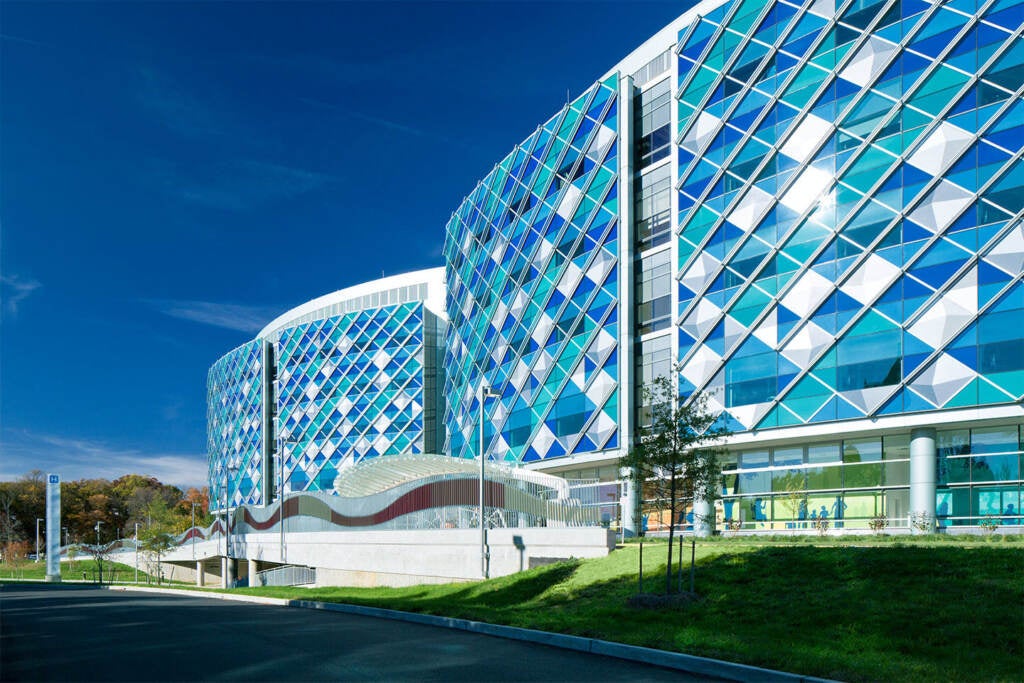
News of the Nemours project gratified Dr. Megan Werner, associate medical director at Westside Family Healthcare in Wilmington. Westside’s patients are predominantly low-income Black and Latino men, women, and children.
“We have known for a long time that it’s the social and environmental determinants of health that really impact a person’s well-being much more or maybe in addition to the health care that we can provide for them,’’ Werner said.
The current practice of treating conditions rather than tackling the root causes isn’t sustainable, she said.
So having a place that’s really focusing on identifying what we can do to address those social and environmental determinants of health is a great thing,” Werner said, “because in the exam room, in our clinical settings, we know that there is much more that needs to be done besides the care that we can provide.”
‘We just don’t have all of the tools that we need in order to be able to address all of those problems, all the things that happen outside of the health care setting. So having an organization like Nemours put these sorts of resources into identifying the barriers to health and finding solutions that we can scale to populations that need them is really going to help us be able to better address disease and illness in underserved populations.”
Werner said asthma can be approached that way.
“If we can keep people from having asthma exacerbations by making sure their environments are healthy, that they’re not exposed to the triggers that lead to their asthma attack,’’ Werner said, ”It’s much more sustainable, uses far less resources.”
WHYY is your source for fact-based, in-depth journalism and information. As a nonprofit organization, we rely on financial support from readers like you. Please give today.




